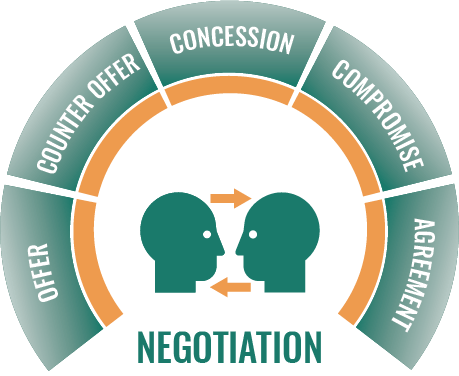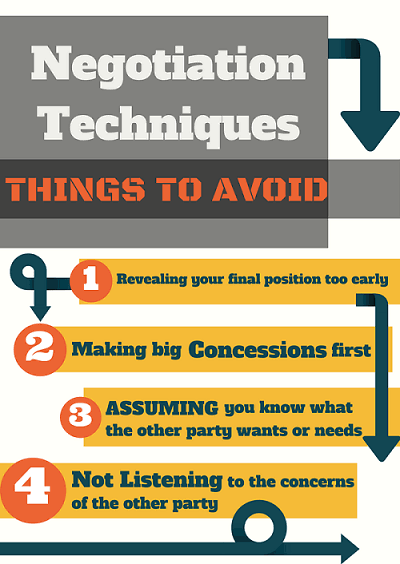From the barter system to the modern currency, as the wheels of time rolled on, the one thing that remained constant and will always be true is that you can’t have it all.
You have limited resources for utilization and if you’re longing for something you don’t have, you will have to call upon an ally called negotiation to come close to fulfilling your longing.
If all that you wish for is represented by a whole pie, negotiation determines the share of pie you get eventually. On one hand, it means that you may not get the whole pie. On the other hand, it means everyone may get at least something.
In other words, negotiation bridges the gap between what you desire and what you can live with.
If you think your path isn’t entwined with negotiation, I urge you to look around with a keen eye.
Have you seen women tenaciously bargain with a vegetable vendor? They use every trick in the book to pay the amount of money they deem appropriate, including the pretense of walking away at the last minute after a long and aggressive argument.
Astute businessmen are well aware of how important a negotiation is to cracking the right business deal and politicians are no strangers to the practice of quid pro quo.
On an individual level, from having a discussion with your employer about your job package to making transactions for the products and/or services you use, most activities involve a negotiation, whether you consciously engage in it or not.
However, it is not just monetary aspects that warrant a negotiation. At times, you often contemplate whether something is worth your time and effort. This is when you negotiate with yourself, for yourself.
Also Read: Sourav Ganguly Calling His Daughter ‘Too Young For Politics’ Is How Indian Parents React When Their Child Discusses Social Issues, As We’re All Just Naive Fools
I hope that it is abundantly clear to you by now that there is no escaping a negotiation.
Since you have got to do it at some point or the other in your life, you might as well follow the principles below to make sure that you do it effectively.
1. Define Your Objective And Minimum Outcome
It is non-negotiable to enter a negotiation without being fully aware of what you seek from it. Furthermore, you should know what the deal-breakers are for you. In other words, which boxes if not checked will make you leave the table.
For instance, you and the landlord come to an agreement on the rent amount. Would you finalize the house if the landlord doesn’t allow your live-in partner to move in with you?
2. Know Your Counterpart
You should analyze well how the party on the other side of the table negotiates.
What are the key areas that matter to them? What has been their past record? Do they fulfill the commitments they make during a negotiation?
Most importantly, make no mistake about who is in a position of relative strength in the negotiation.
Answers to the above questions will help you realize where your areas of interest overlap with those of your counterpart and if they don’t overlap at all, how you can close the gaps to find common ground.
3. Make A Credible Offer And Be Patient
The offer you put on the table should be well-thought and credible. If your offer isn’t credible, the other party may not even bother to make a counter-offer.
Also, you should wait for the other party to respond to your offer. If you put another offer on the table without getting any response for the first one, you stand to negotiate from a position of weakness and not strength.
4. Work Towards A Win-Win
Your counterpart won’t do a deal with you until she feels that it serves her interests as much as it serves yours, if not more.
Be prepared to give relaxations in terms that go well beyond your minimum outcome and ensure that your counterpart’s objective is somehow met. However, don’t lose sight of what you set out to achieve through the negotiation.
5. Be Farsighted
It is not necessary to win every negotiation. Exercise your discretion to understand if the negotiation is only going to benefit you in the short term. Be prepared to walk away from the deal if you think it will hurt you in some way in the future.
On the flip side, at times, you may have to lose one small negotiation so that you can get your counterpart to acquiesce to your terms in another bigger and more important negotiation.
If there’s anything else that has helped you win a negotiation effectively, please let me know in the comments below.
Sources: Program On Negotiation By Harvard Law School, The Business Journals
Image Credits: Google Images
Find The Blogger: @thinks_out_loud
You May Also Like To Read:
Top 10 Tweets/Posts Which Show The Link Between National Population Register (NPR) And NRC








































